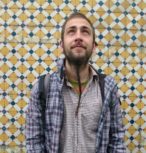DNA reveals the past and future of coral reefs
New DNA techniques are being used to understand how coral reacted to the end of the last ice age in order to better predict how they will cope with current changes to the climate. James Cook Univer

From 2005 to 2022, the main node of the ARC Centre of Excellence for Coral Reef Studies was headquartered at James Cook University in Townsville, Queensland (Australia)








Adaptation to climate change has been traditionally studied at the scale of the individual, with studies either looking at vulnerability or focusing on specific adaptation actions and the potential of individuals to engage in that behavior. However, policy relevant adaptation to climate change needs to take place at the broader scale of the coupled social-ecological systems (SES) to adequately inform decision making. Despite the general need to understand adaptation in coupled systems, we don’t know yet to what extent vulnerability and adaptation studies are considering the complexity of SES. The present study contributes to this need by looking at each of the variables that have been measured in applied studies of vulnerability, adaptation and SES sustainability. With SES theory as a reference, we conduct a systematic review and comparison between case studies on small-scale fisheries that apply SES, vulnerability and adaptation approaches. We find a gap between theory and implementation, such as interactions between social and ecological subsystems, and related ecosystems. On contrast, there is a focus of attention on actors, governance systems and resource units. We propose a set of guidelines to better address adaptation in social-ecological systems that include broadening the coverage of adaptation studies, better addressing interactions, considering cultural and ecological variables and conducting stakeholder consultations.
Bio: Diego Salgueiro is a PhD candidate at the University of Vigo conducting research on adaptation of artisanal fisheries to Climate Change. Diego has always been amazed by nature, he studied Marine Sciences at the University of Vigo, with student exchange experiences in GEOMAR-Helmholtz Centre for Ocean Research, Christian-Albrechts_Universität zu Kiel and Autónoma Baja California University. After combining social and educational work he became a Master´s student in Biodiversity, Functions and Management of Ecosystems, in the Basque Country University, where he has collaborated with the University of Santiago de Compostela for his Master’s thesis developing the Ocean Health Index at a regional scale. By getting to know different worldviews, Diego derives his main research questions on socio-ecological systems, climate change and adaptation. The analysis of the diversity of perceptions and the networks structures that are related to climate change adaptation are the two main pillars of his investigation. Also, he takes part of educational programs and outreach activities where he communicates the acquired knowledge. From April to July 2019, Diego is visiting the Centre of Excellence for Coral Reef Studies to work with Michele Barnes and learn more about the network approach and climate change adaptation in small-scale fisheries.
New DNA techniques are being used to understand how coral reacted to the end of the last ice age in order to better predict how they will cope with current changes to the climate. James Cook Univer
A new study on the effects of climate change in five tropical countries has found fisheries are in more trouble than agriculture, and poor people are in the most danger. Distinguished Profess
James Cook University researchers have found brightly coloured fish are becoming increasingly rare as coral declines, with the phenomenon likely to get worse in the future. Christopher Hemingson, a
Researchers working with stakeholders in the Great Barrier Reef region have come up with ideas on how groups responsible for looking after the reef can operate more effectively when the next bleaching
Abstract: As marine species adapt to climate change, their heat tolerance will likely be under strong selection. Individual variation in heat tolerance and its heritability underpin the potential fo
Abstract: The Reef Ecology Lab in KAUST’s Red Sea Research Center explores many aspects of movement ecology of marine organisms, ranging from adult migrations to intergenerational larval dispersal
Abstract: Macroalgal meadows are a prominent, yet often maligned component of the tropical seascape. Our work at Ningaloo reef in WA demonstrate that canopy forming macroalgae provide habitat for ad
Abstract: Sharks are generally perceived as strong and fearsome animals. With fossils dating back at least 420 million years, sharks are not only majestic top predators but they also outlived dinosa
Abstract: Connectivity plays a vital role in many ecosystems through its effects on fundamental ecological and evolutionary processes. Its consequences for populations and metapopulations have been
Abstract: Evolution of many eukaryotic organisms is affected by interactions with microbes. Microbial symbioses can ultimately reflect host’s diet, habitat range, and even body shape. However, how
Abstract: The past few years have seen unprecedented coral bleaching and mortality on the Great Barrier Reef (GBR) but the consequences of this on biodiversity are not yet known. This talk will expl